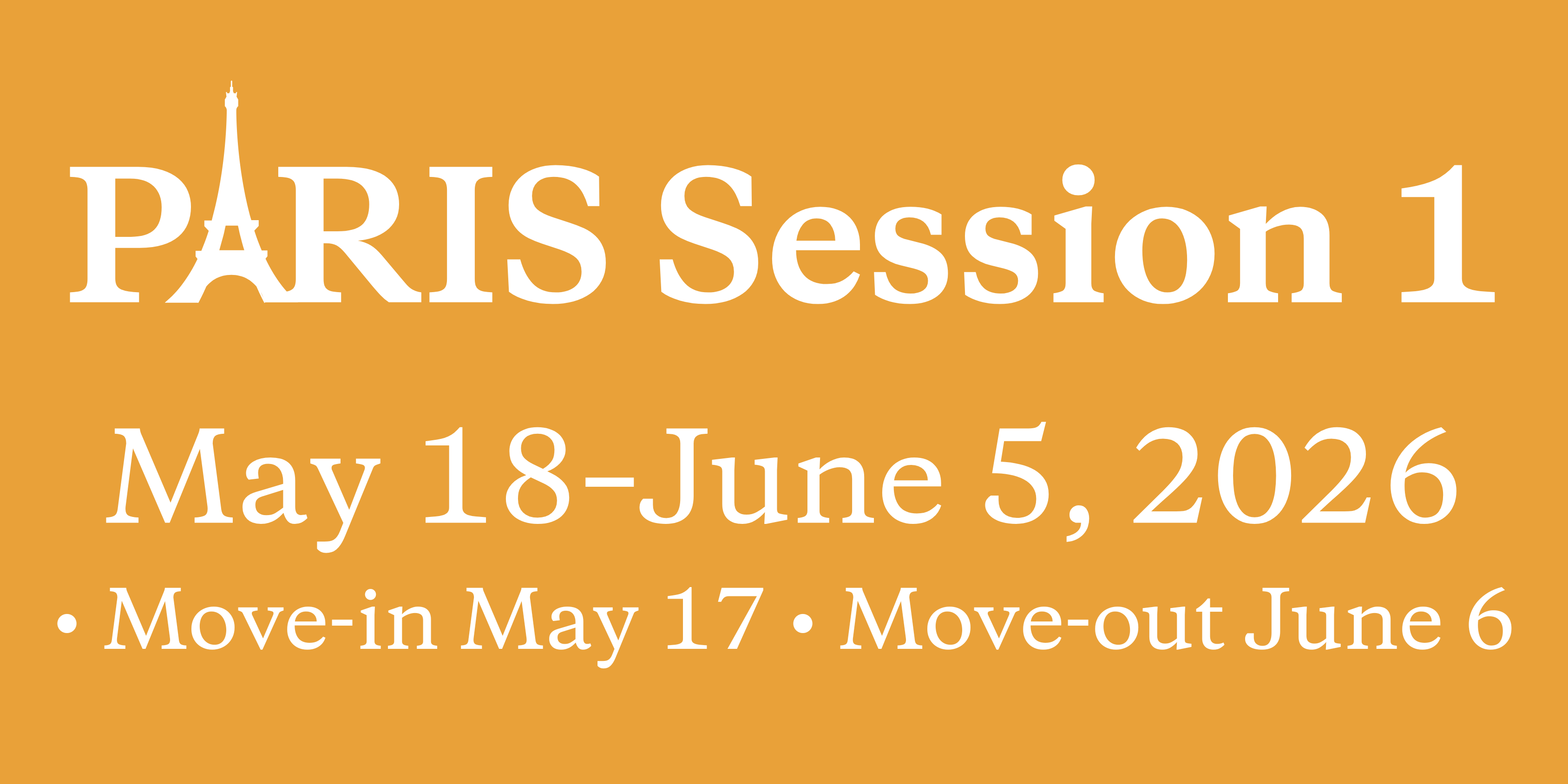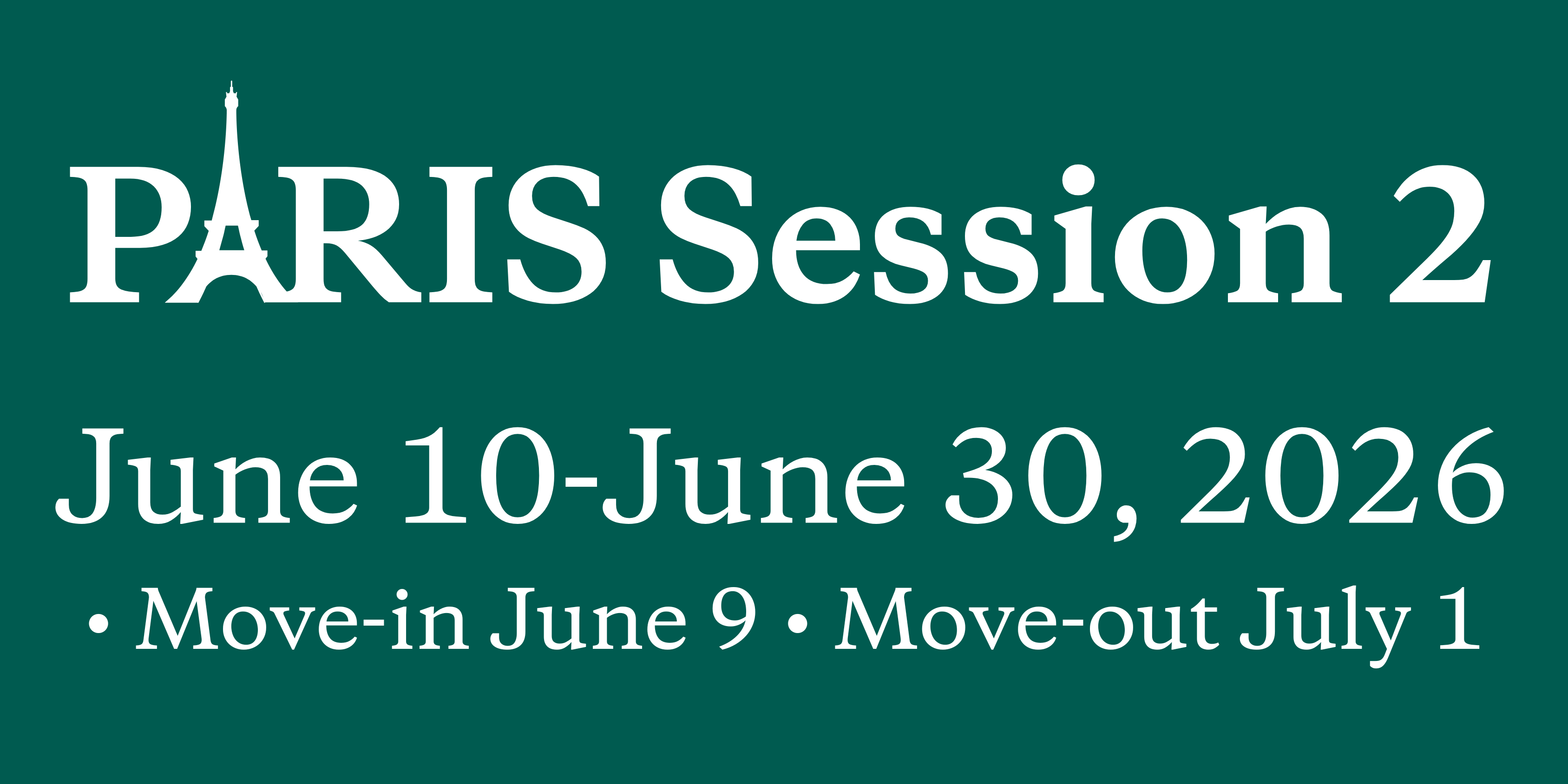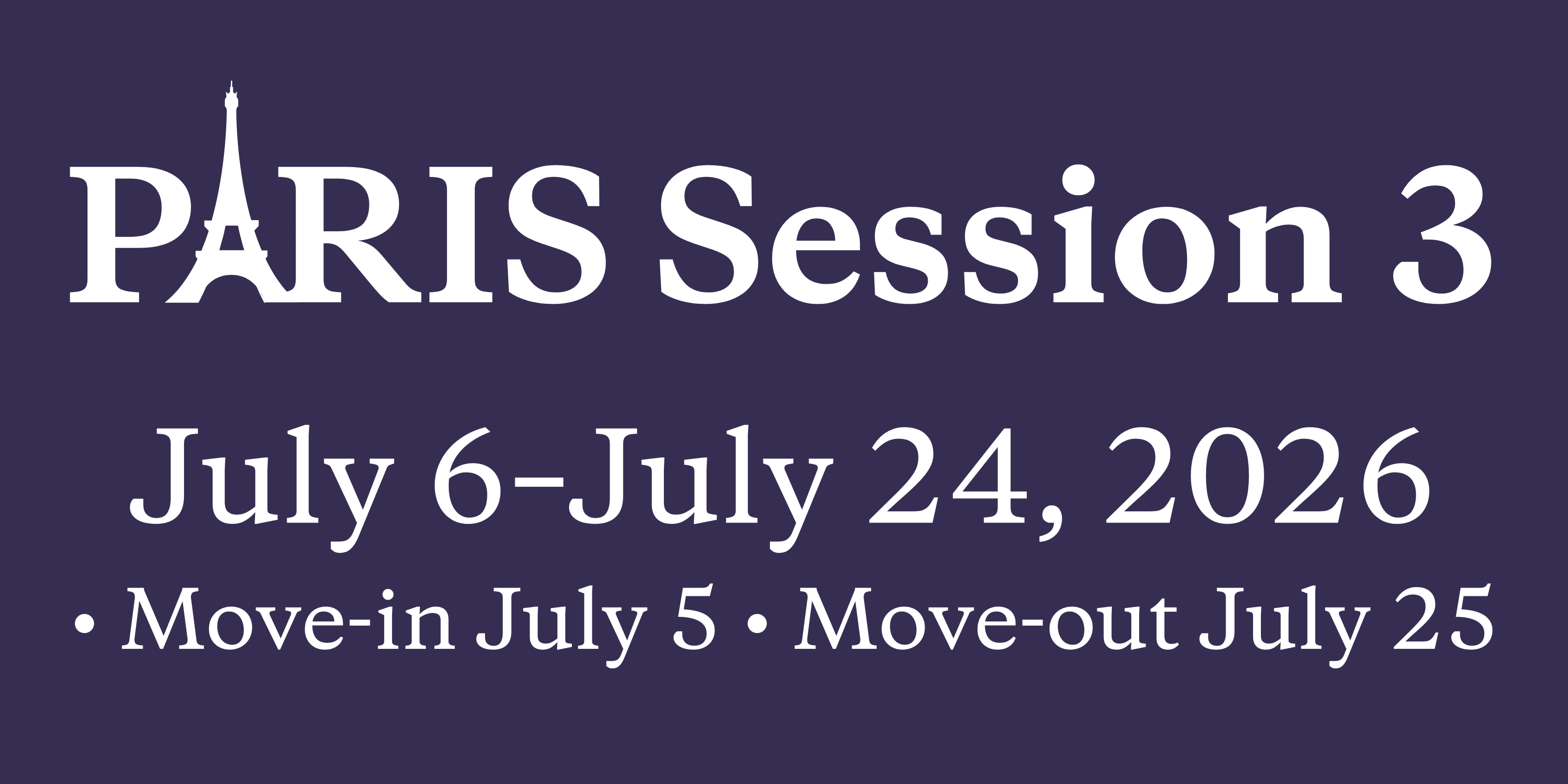Rice Global Paris Summer Program
Summer 2026 Courses
APPLY NOW: RICE GLOBAL PARIS SUMMER PROGRAM 2026 APPLICATION
To learn more about the program logistics and cost, visit our Paris Summer Program Information and FAQs page. If you cannot find the answer to a question on our website, email us at globalowls@rice.edu.

HART 116 Paris Through the Ages: From Gothic Grandeur to Modern Echoes
Discover Paris through the eyes of the artists who shaped it! This course explores how medieval masterpieces—from the soaring cathedrals of Notre-Dame and Sainte-Chapelle to the jeweled pages of illuminated manuscripts—continue to spark modern imagination. We’ll move from Gothic vaults to the bold visions of the Musée d’Orsay and Centre Pompidou, tracing how artists across centuries have reinvented the city’s visual language.

PHYS 146 History of Physics & Astronomy: Science, Society, and Stories of Discovery
This course brings the history of physics and astronomy to life by walking in the footsteps—literally—of the people behind major scientific advancements from the 1600s through the early 1900s in Paris. We’ll study the lives of these scientists, examine the societal context in which they lived, and learn enough of the science to appreciate their achievements. We’ll also tour historical sites and, where possible, re-create the discoveries that took place there.

HIST 320 Imperial Gardens: A Cultural Comparative History
This class focuses on landscape and power, emphasizing the complexity and dynamism of the historical pleasure garden tradition. Parisian parks and gardens are explored as evolving expressions of political power, aesthetic ideology, social reform, and environmental practice. We will analyze how gardens functioned in Paris as spaces of power, leisure, and artistic expression as well as lived spaces.
COURSE FULL - WAITLIST ONLY

KINE 301 Human Physiology
This course is for anybody with a body who wants to know a bit more about how it works! KINE 301 addresses fundamental and advanced principles of how the human body works at the molecular, cellular, tissue, organ, and organism levels. In this special "Paris" offering of the course, we will also investigate the impact of French physiologists on anatomy, art, and medicine.
COURSE FULL - WAITLIST ONLY

ELEC 220 Fundamentals of Computer Engineering
The course is for anyone who wants to see what is behind the magic of modern microprocessors and to better understand how they will shape our lives. We will use the five components of every programmable computer (Memory, Input, Output, Control, and Datapath) to navigate the technology enabling modern microprocessors. We will explore some specific modern system examples including machine learning and wearable molecular sensors

ARTS 237 Body, Image, and Sound
This course is an inquiry of contemporary art practices that complicate, elucidate and question our understanding of the human experience. Through site-visits, museum and gallery tours throughout the city, students will study (up-close) the work of artists, musicians, fashion designers, social scientists and writers that are motivated by similar questions of desire, self-expression and history.

ENGL 272/MDHM 272 Literature and Medicine
This course explores a wide range of works that draw us into different experiences patients, doctors, caregivers, and their families have with medicine. This course will focus on French literature in translation and will foreground global health, inequalities, and ethical debates. We will closely examine literature written by contemporary French authors who consider these topics and more as we read novels, short stories, poetry, plays, and journalism.
POPULAR COURSE - SEATS FILLING FAST!

ENGL 301 Introduction to Fiction Writing
This course will introduce you to the fundamentals of fiction writing, with an emphasis on how stories are built and why they move us. Through close reading and generative exercises, students will deepen their writing practice in the structured, supportive environment of the workshop setting. Taught in Paris, the course treats the city as a living source of narrative settings, characters, and atmosphere, inviting students to draw inspiration directly from place.

HART 327 Making Modernity in the Streets of Paris: Art, Architecture, Film
This course will study the central role of Paris—as place, instigator, and site of contestation—in the development of modern art, film, and architecture since 1870. Working through a selection of key films, works of art, built structures, and cultural debates, we will explore defining issues in the development of modern culture by utilizing the city of Paris as our primary focus and site of inquiry.

ECON 100 Principles of Economics
This unique offering of ECON 100 combines an introduction to fundamental microeconomic and macroeconomic concepts with an immersive experience in Paris. We will study the basic concepts of microeconomics and macroeconomics while also gaining insights into the European Union and French economy. Designed for both majors and non-majors, this course blends economic principles with the cultural and economic landscape of one of the world’s most historic cities.

PSYC 354 Introduction to Social and Affective Neuroscience
This course surveys social and affective neuroscience, covering neurobiological mechanisms of social cognition, emotion, and emotion regulation in both healthy and disordered populations, with connections to health psychology and clinical neuroscience. Paris has been central to significant psychology, psychiatry, and neuroscience research; the research we examine will be integrated with the city in which we are studying.
POPULAR COURSE - SEATS FILLING FAST!

BIOS 368 Monster: Conceptions and Misconceptions of the Monstrous in Biology, Art, Literature, and Medicine
This course examines monsters born of both nature and human imagination, exploring how they emerge from evolution, language, brain physiology, and fiction. Through French literature and films, we will analyze how concepts of the monstrous reveal insights into human fears and misperceptions. Class discussions will focus on the ambiguous spaces in our perceptions of humanity and monstrosity, rather than defining who the monster is.